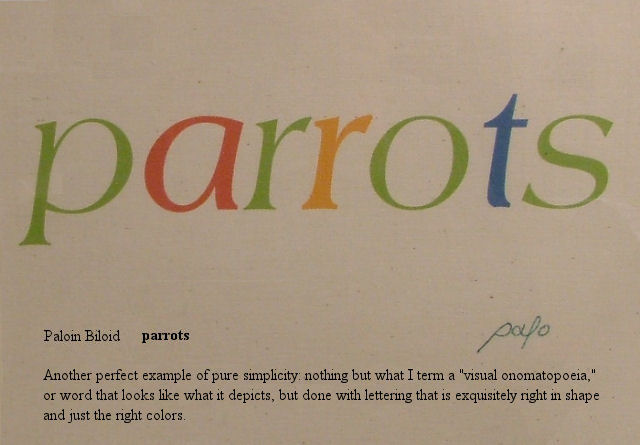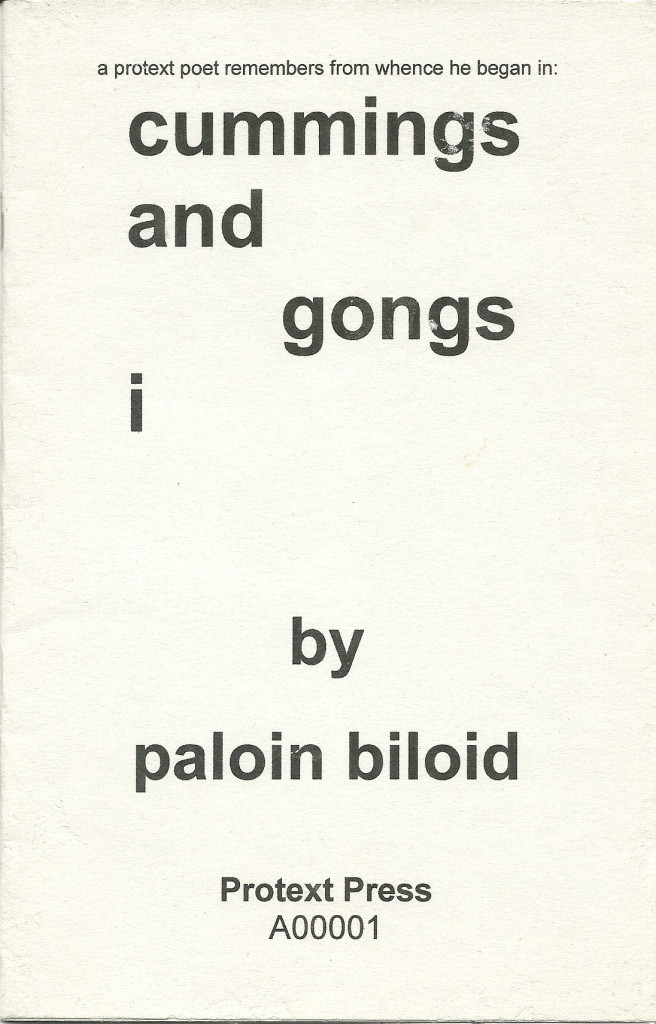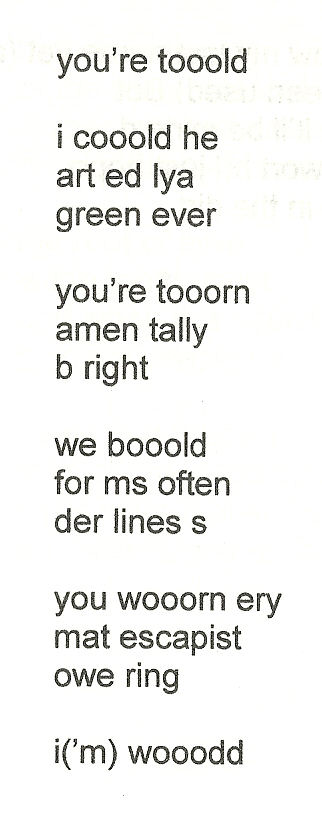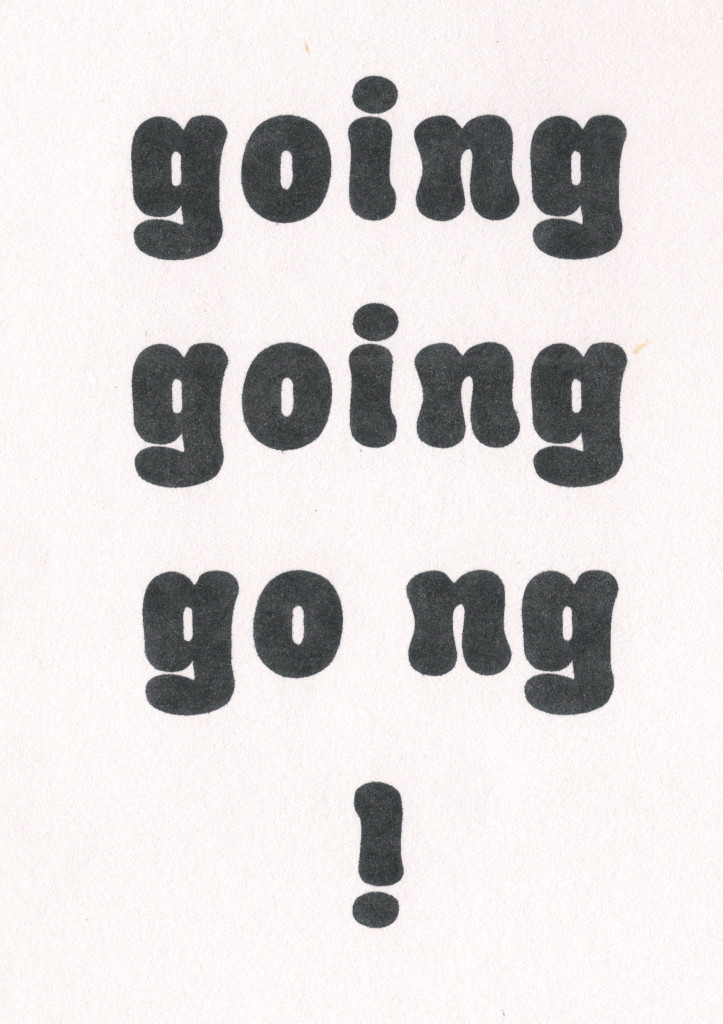Entry 3 — The Nature of Visual Poetry, Part 1

The image above is from the catalogue of a show I co-curated in Cleveland that Michael Rothenberg was kind enough to give space to in Big Bridge #12–with two special short gatherings of pieces from the show, with commentary by me. I have it here to provide relief from my verosophizing (note: “verosophy” is my word for serious truth-seeking–mainly in science, philosophy, and history). It’s also a filler, for I’ve had too tough a day (doctor visits, marketing, phoning people about bills) to do much of an entry.
It’s not a digression, though–I will come back to it, as a near-perfect example of a pure visual poem.
Now, briefly, to avoid Total Vocational Irresponsibility, back to:
the Nature of Visual Poetry
The pre-awareness is a sort of confederacy of primary pre-aware- nesses, one for each of the senses. Each primary pre-awareness is in turn a confederacy of specialized secondary pre-awarenesses such as the visiolinguistic pre-awareness in the visual pre-awareness and the audiolinguistic pre-awareness in the auditory pre-awareness. Each incoming perceptual cluster (or “pre-knowlecule,” or “knowlecule-in-progress,” by which I mean cluster of percepts, or “atoms of perception,” which have the potential to form full-scale pieces of knowledge such as the visual appearance of a robin, that I call “knowlecules”) enters one of the primary pre-awarenesses, from which it is sent to all the many secondary pre-awarenesses within that primary pre-awareness.
The secondary pre-awarenesses, in turn, screen the pre-knowlecules entering them, accepting for further processing those they are designed to, rejecting all others. The visiolinguistic pre-awareness thus accepts percepts that pass its tests for textuality, and reject all others; the audiolinguistic pre-awareness tests for speech; and so on. More on this tomorrow, I hope.



